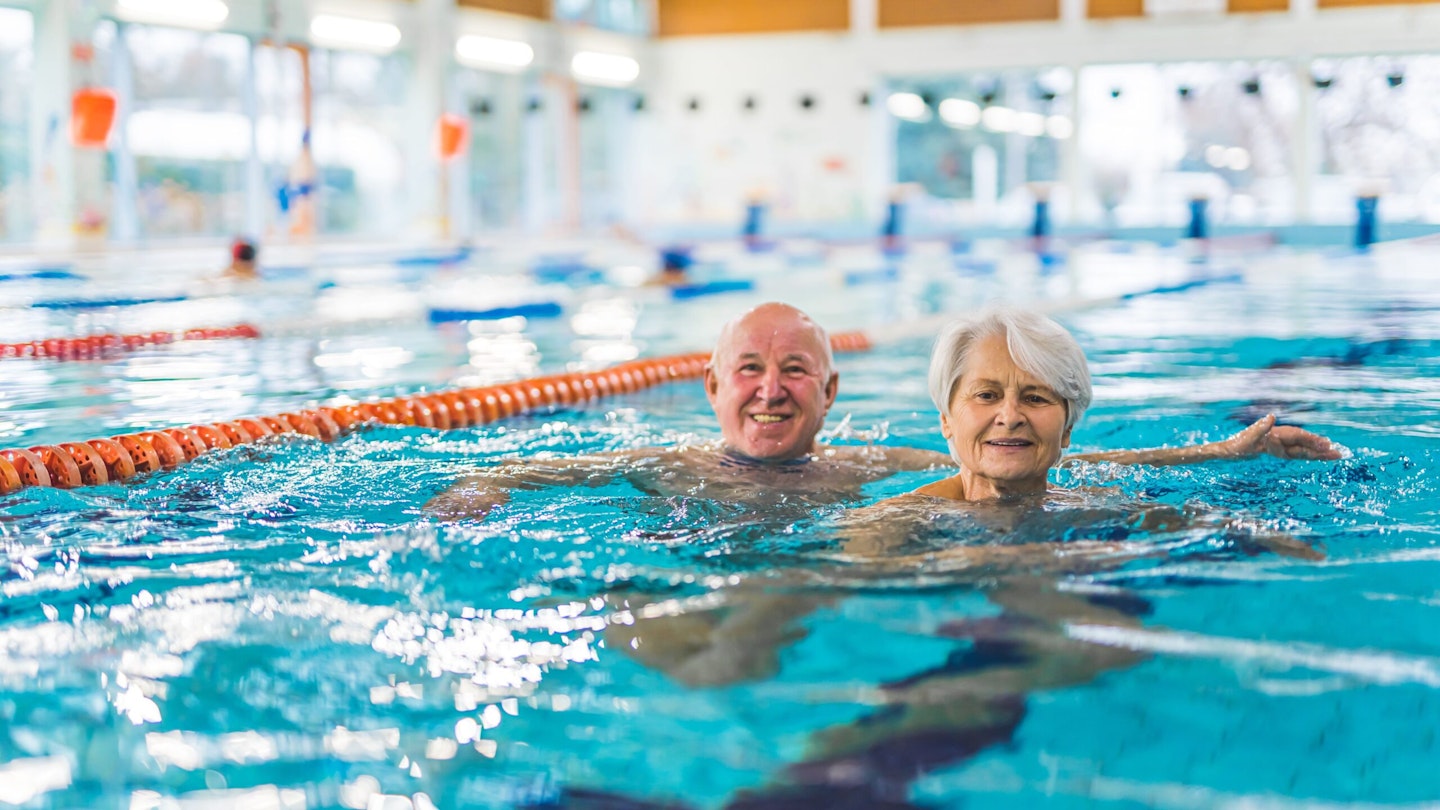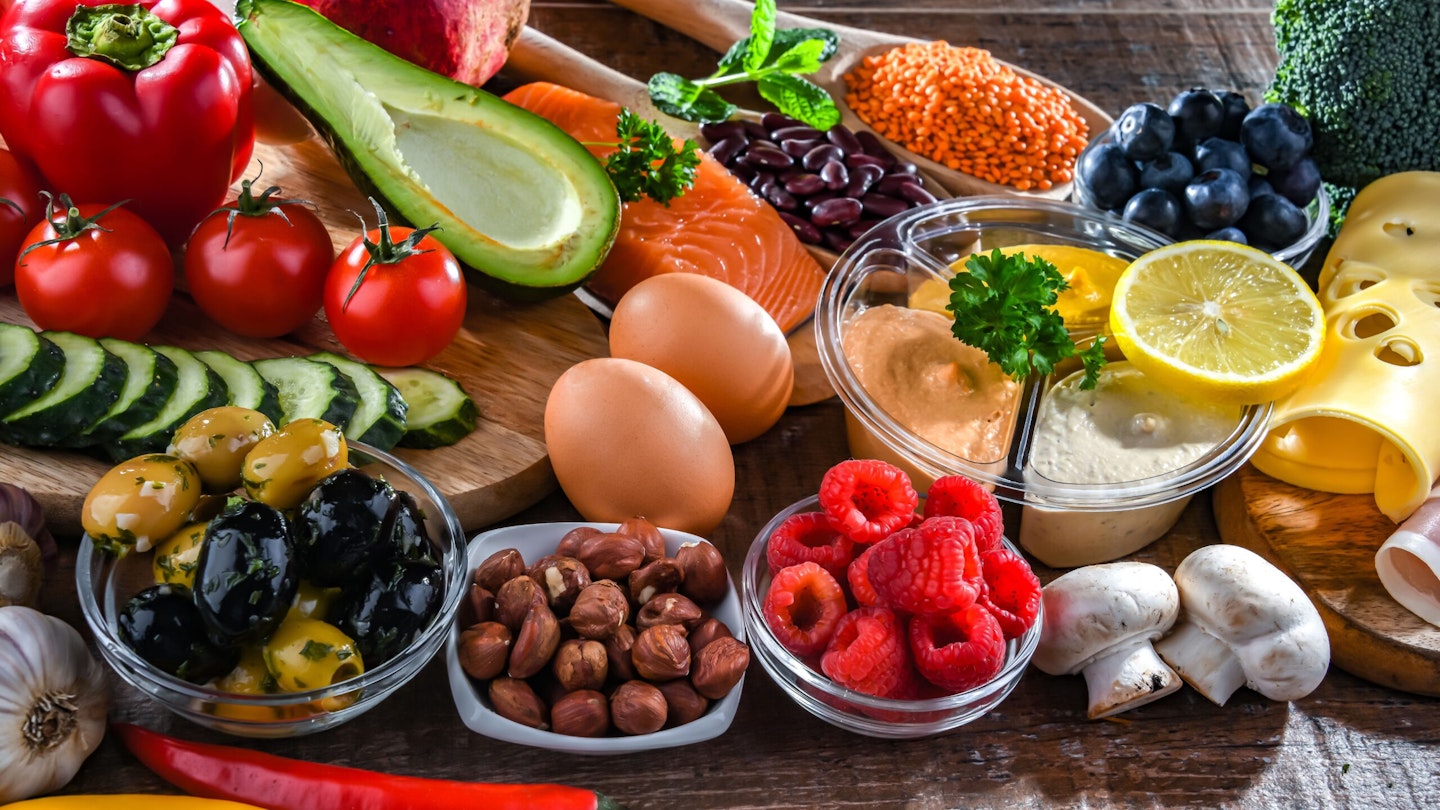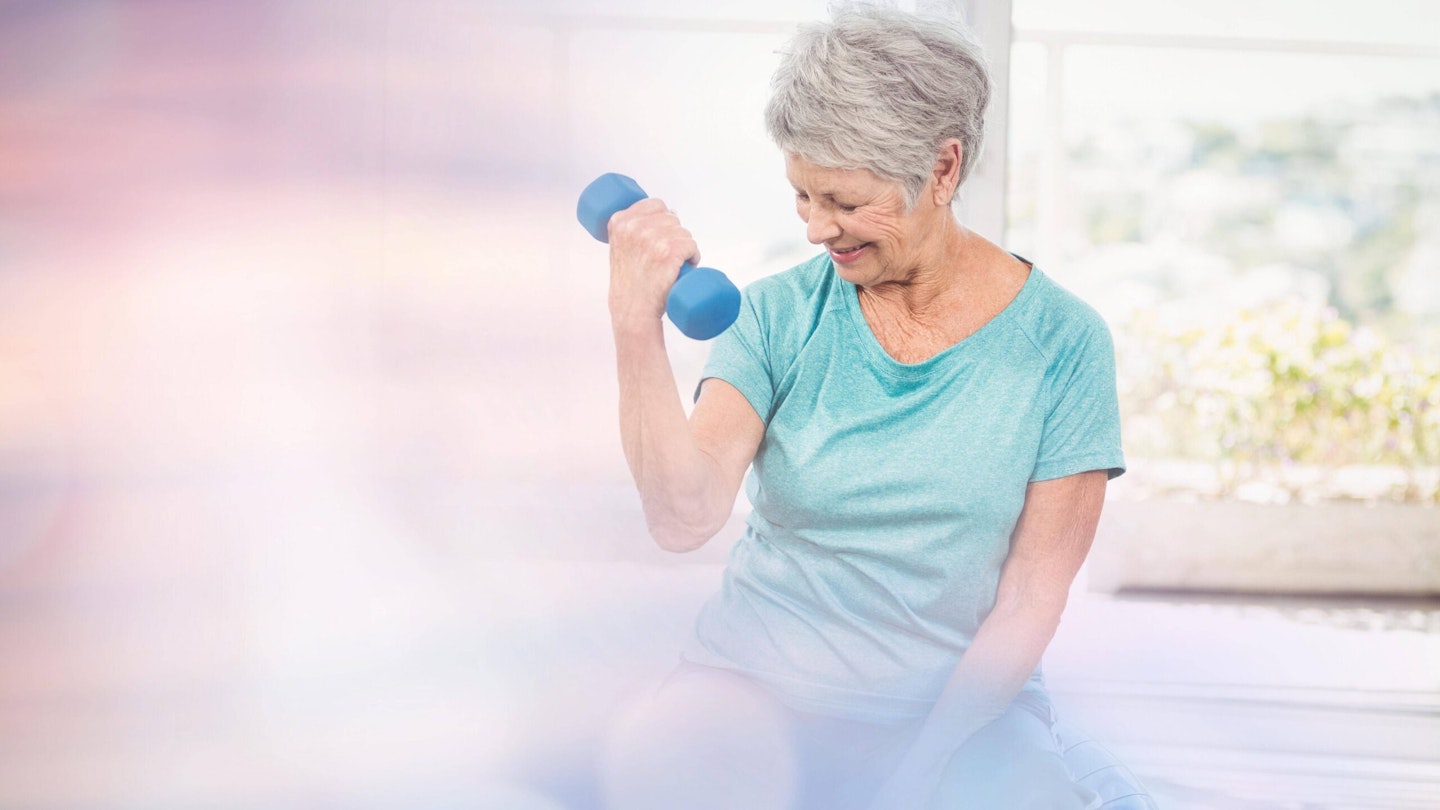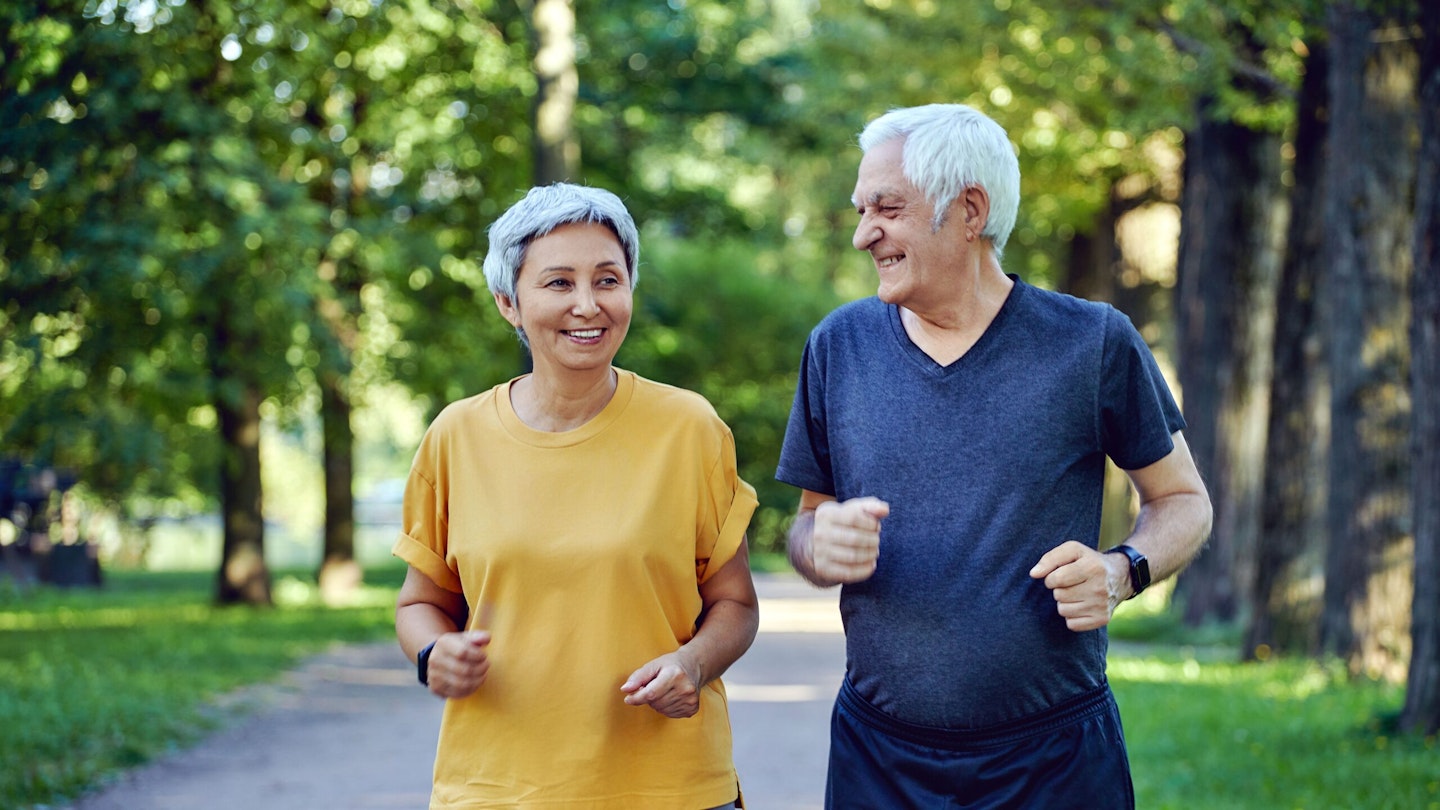Michaella Mazzoni offers advice on post-menopausal weight gain, plus our fitness expert shares her tips.
Menopause has so many different symptoms it’s hard to keep up, and it affects everyone differently. Some of us will sail through with barely any symptoms, while others will have to cope with a lot of changes; most of us will sit somewhere in the middle.
Whether you find this stage of life a walk in the park or a stumbling block, the fact is our bodies alter in mid-life just as they did in puberty, and that brings an undeniable change to the way our body uses energy.
We often like to reminisce about the time we could ‘get away’ with eating anything and still stay slim, but once menopause comes and our oestrogen levels deplete, weight gain – especially around the middle- seems to become an inevitability. But must it be so?
Why is my metabolism slow after menopause?

As a personal trainer and fitness expert, I can tell you that weight gain is not something that you have to put up with, but (sadly) we need less calories as we age, because our metabolism slows down. This happens due to declining oestrogen levels and is, annoyingly, an inevitable part of ageing. Eating at the same level we always have done, can lead to changes in physical appearance.
This can be upsetting, leading to many complicated feelings – lack of confidence or self-worth are just two. Over the years, I’ve worked with many women who feel they face an uphill struggle to get back to the weight they were when they were 20, but there are several reasons why thinking this way is a bad idea.
1- We are not in our twenties or thirties now. Our bodies have done a lot for us. It stands to reason that they’ll not be in peak condition when we get to fifty and beyond.
2 - Obsessing over a number on the scale is never a good idea. Instead, focus on how your clothes fit, how much energy you have, how you feel when you look in a mirror, what your body can do.
3- Instead of focusing on losing weight, focus on how to speed up metabolism.
How to speed up metabolism after menopause?
I spoke to registered nutritionist and menopause expert, Michaella Mazzoni, to find out more on speeding up our metabolism as we age.
“Blood sugar has the most impact on metabolism,” she says. “So, if you’re spending a lot of time spiking blood sugar – for example having toast and jam, or oats with honey and fruit for breakfast, then there’s not really any protein there, so the blood sugar will spike. And when that happens, your body starts to try and get the sugar out of your blood by converting it to fat in the cells, so we put on weight.
But equally, if you skip a meal and you don't eat for long periods of time, then the blood sugar can drop, and you end up burning up your muscle. And it's your muscle that keeps your metabolism high.”
Michaella offers the following tips for keeping metabolism high:
-
Eat plenty of protein and eat a healthy diet
-
Stay hydrated
-
Do some kind of strength-based exercise to preserve muscle mass
-
Add more movement to everyday life
-
Prioritise sleep
How to lose weight after menopause?
If you’re looking to lose weight – or as I’d prefer to look at it – wanting to know how to speed up your metabolism, focus on the following:
Eat lean protein and follow a Mediterranean-style diet

“If we're thinking about an amount of protein, try to aim for around about 20 grams at breakfast,” Michaella says. “Maybe two eggs, something like that. You can also use protein powder and save the higher carb foods for later on in the day. That definitely doesn't mean you can’t eat carbs, because carbohydrates are really important for lots of different things but try to focus more on protein and fat at breakfast.”
There is a lot of evidence that eating a Mediterranean-style diet has huge benefits for our overall health. Its focus on lean proteins is also great for boosting metabolism as Michaella explains:
“There's not one perfect diet for everyone, but the Mediterranean diet ticks a lot of boxes for a lot of different people. It's heart friendly, and there's a lot of good support around the brain health and bone health to consider too.”
A Mediterranean diet can also help reduce blood pressure, cholesterol and reverse type 2 diabetes. Crucially, the high levels of protein offered from lean meat or fish, will also help us preserve muscle mass, keeping our metabolism high.
Drink all the water
Or sugar-free squash, or herbal tea... Staying hydrated helps keep us full, meaning we’re far less likely to snack. Don’t overdo it on the caffeine, though, and while some alcohol is fine, aim for something like a small glass of red wine, that has antioxidants, and no more than a couple of glasses a week.
Water is always a good choice and, if you’re hungry, drink a large glass then distract yourself for half an hour before deciding if you’re still in need of a snack.
Lift the weights!

I have worked as a strength coach for 5 years now, and I cannot stress this enough: If you're over 40 and not already doing some form of strength training, you need to start. This is something you can’t afford not to do. Lean muscle mass decreases as we age, so preservation is crucial. It helps with so many things.
I’m not asking or expecting anyone to become a bodybuilder, but simple activities like learning how to use dumbbells, or how to use resistance bands, will make a huge difference to your wellbeing.
Metabolism will increase, and stay high, which could lead to weight loss if you eat a good diet as explained above. Not only that, but you’ll be protecting against many age-related health conditions such as osteoporosis or osteoarthritis.
And perhaps the most important reason to do some weight training for ladies is to protect yourself in the future. Do the work now, so you don’t regret it later. If you fall, and you’re strong enough to get yourself up off the floor you could quite literally save your life.
The NHS recommends a minimum of 2 strength based sessions a week, and these can take many forms. You might join a class in the gym or hire a personal trainer. You may prefer to do some exercises at home. Swimming is a great choice as it’s low-impact on the joints but works every muscle in the body. Pilates is great at improving core strength and pelvic floor, but you will still need to do another form of weight training alongside just to hit the other muscle groups.
Increase daily movement

A sedentary lifestyle isn’t good for any of us and can contribute to many health problems. If you want to learn how to speed up metabolism, you don’t need to take up marathon running or take part in the Tour de France, but making a concerted effort to move more will pay dividends.
As well as the strength based exercise listed above, getting outside, even for ten minutes a day, will improve heart health, help with weight loss and dramatically improve mental health, too. A fitness tracker can be a great motivator – try setting a daily or weekly step goal with family or friends. And if it’s raining, you can always use a treadmill or exercise bike.
Catch some zzzz’s!

Sleep can, unfortunately, prove rather elusive throughout menopause but if you can, try and aim for 7-9 hours a night. Setting a good bedtime routine can help; stop looking at any screens at least an hour before bed, and aim for a consistent sleeping and waking time, even on weekends.
When you can’t sleep, stopping caffeine after 11am is also useful – I can attest to it making all the difference for being able to get to sleep! Journalling is a useful tool for many, since writing things down before bed, in your screen-free time, can help you to stop lying awake ruminating on things.
Finally, if you suffer from hot flushes, or just can’t bear being too warm, taking magnesium or a menopause supplement, can help.
Michaella Mazzoni is a BANT registered nutritionist specialising in women's health and wellbeing. She offers private consultations as well as online meal plans.
Becky Fuller is a senior digital writer for Yours.co.uk. She is also a fully qualified personal trainer and strength coach, specialising in fitness and wellbeing for over 50s. Prior to joining Yours, Becky was a fitness writer for Saga, and a freelance entertainment and theatre journalist. Becky is passionate about helping people to move well and discover the many benefits of strength training.
